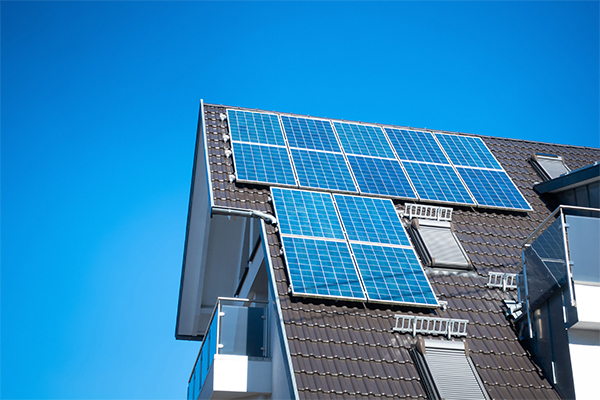Financing solutions for a cleaner, brighter future.
When considering solar energy systems, it is important to know you have multiple financial options. Generally, buying a solar system outright can result in a lower overall cost compared to financing options like solar loans, leases, or power purchase agreements (PPAs).
 SOLAR LOANS
SOLAR LOANS
If you are thinking about purchasing a solar system, solar loans may significantly reduce upfront costs. In many cases, monthly loan payments are less than typical utility bills, allowing you to save money immediately. Solar loans work similarly to home improvement loans, and some areas offer subsidized solar loans with below-market interest rates, making solar energy even more accessible.
Additionally, new homeowners can integrate solar installation into their mortgage using programs through the Federal Housing Administration (FHA) or Fannie Mae. These programs allow home buyers to finance home improvements, including solar systems, as part of their home purchase.
SOLAR LEASES AND POWER PURCHASE AGREEMENTS (PPAs)
Solar leases and power purchase agreements (PPAs) offer consumers a way to benefit from solar energy without owning the system. Under these arrangements, the solar company owns the system, and consumers either pay a fixed monthly fee (in the case of leases) or purchase the electricity generated at a set price per kilowatt-hour (with PPAs). Both options can reduce electricity bills without requiring an upfront investment or monthly loan payments. In many cases, you can go solar with no money down.
If your home or roof is not suitable for solar, or you don’t own your home, you can still benefit from switching to solar under a PPAs or a Community Solar program.
For solar leases, monthly payments are based on the estimated energy production of the system. Many operating leases are especially advantageous for businesses, as they can help lower energy costs, maximize tax benefits, and pave the way toward system ownership over time.
